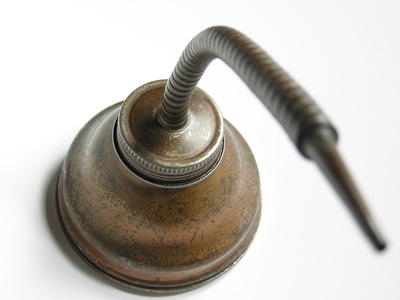
Motor oil ensures that pistons do not rub against the metal found in engine blocks. It can be used in vehicles such as motorcycles, trucks and cars. Motor oil is made up of several different chemicals, with the main one being crude oil. Some of the oil can contain chemicals that are carcinogenic. As a result, it is necessary to dispose of the motor oil properly.
Hydrocarbons are chemicals that are found in motor oil. They are distilled from crude oil and other types of additives that are used to improve the oil's performance. When used motor oil is disposed incorrectly, the hydrocarbons adhere to the surface of the soil. Most hydrocarbons exposed to air evaporate. When contact is made with water, these chemicals bind to it.
Phenoxides are chemicals that are added to motor oil. They act as a base to neutralize acids that are made from sulfur compounds in the oil and prevent sludge from forming in the motor oil. Phenoxides serve as detergents to suspend soot and are corrosion inhibitors. This compound is also responsible for carrying fine particles to the oil filter to be removed from the oil stream.
Barium and cadmium are two highly toxic metals found in used motor oil. New motor oil usually picks up additional chemical from the engine as it passes through. Since the additives are contaminants, the used motor oil is more environmentally damaging than unused oil. As a result, there must be proper disposal of used motor oil. These chemicals can have serious long and short-term effects for the environment when allowed to enter through waterways or soil.